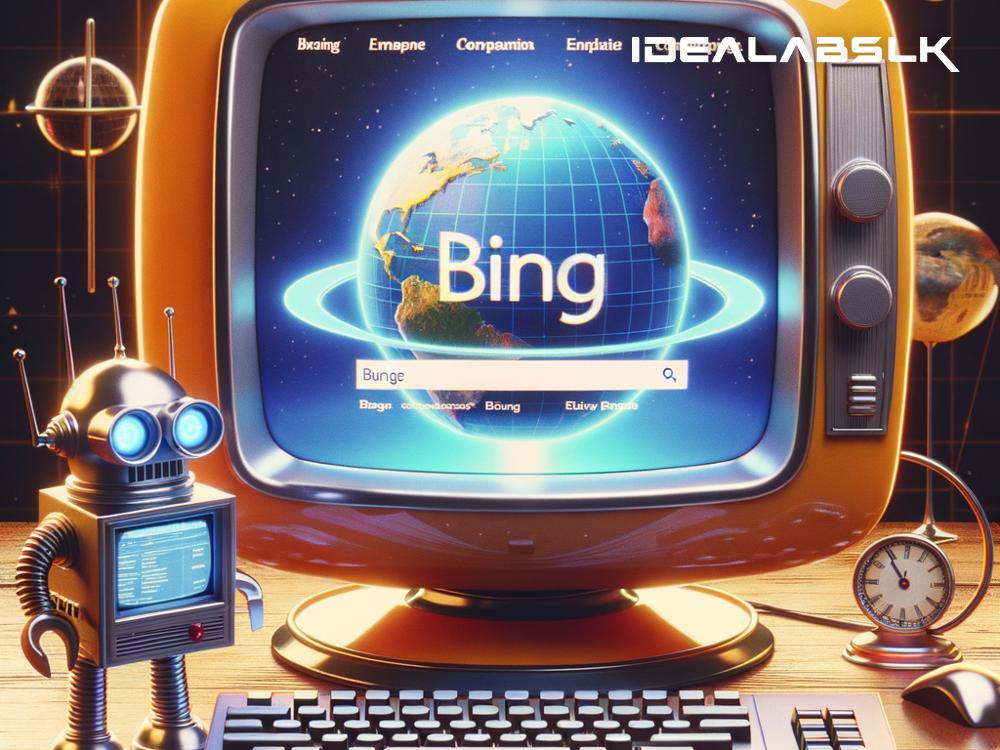The Journey of Bing: Discovering the World One Click at a Time
In the fast-paced digital age, where searching the internet has become as natural as breathing, Bing stands tall among giants. As Microsoft's answer to Google's commanding presence, Bing has carved its own path, evolving and growing in ways that have surprised and impacted users worldwide. Let's take a closer look at the history of Bing, understanding how it became the search engine we know and use today.
The Birth of Bing
Bing's journey started in 2009, a product of Microsoft's vision to create a more organized and user-friendly search engine. Before Bing, there was Live Search, Windows Live Search, and MSN Search, but none of these predecessors quite managed to leave the mark Microsoft hoped for. With Google quickly becoming synonymous with search, Microsoft knew it had to reinvent its approach, and thus, Bing was born.
What's in a Name?
The name "Bing" was chosen for its simplicity, memorability, and potential for verb usage (similar to Google). Microsoft wanted a fresh start and a simple name that would resonate globally, and "Bing" fit the bill perfectly. It was a sound that represented discovery and decision-making – and that's exactly what Microsoft envisioned for its new search engine.
Key Features and Innovations
From the beginning, Bing set itself apart by focusing on providing not just search results, but a richer web experience. It introduced features like the Bing homepage with its beautiful daily background images, which became an instant hit for its visual appeal. More importantly, Bing pushed the envelope in search technology with features such as:
- Bing Maps, which offered detailed maps and directions,
- Bing Shopping, to help users make informed purchasing decisions,
- Bing Rewards, a program that rewarded users for their searches, encouraging loyalty,
- Vertical Searches, like images, videos, and news, aimed at making specific types of searches more efficient.
Struggles and Strategies
Despite its innovations, Bing faced an uphill battle against Google's dominance. Microsoft knew they couldn't beat Google at its own game, so they decided to play a different one. In the years following its launch, Bing focused on integrating search more deeply with Microsoft's products and services. This meant making Bing the default search engine on Microsoft devices and software, including Windows and Internet Explorer (later Edge).
Another strategy was forming partnerships with other companies. A notable partnership was with Yahoo!, which helped increase Bing's market share and visibility. Bing also became the search engine behind Amazon's Kindle and Apple's Siri, further expanding its reach.
Perception and Growth
Initially, Bing was often met with skepticism. However, over time, as Microsoft continued to invest in and improve its search engine, perceptions began to change. People started to appreciate Bing's user-friendly interface and innovative features. While it's true that Google still holds the lion's share of the search engine market, Bing has solidified its position as a strong contender, boasting billions of search queries per year.
Bing Today
Today, Bing is more than just a search engine; it's an integral part of Microsoft's ecosystem, powered by AI and machine learning to provide even more personalized and relevant search results. With features like voice search, image search improvements, and Bing's integration into Cortana (Microsoft's virtual assistant), it's clear that Bing has come a long way since its inception.
One of Bing's most ambitious initiatives has been its investments in AI to make searches more conversational and intuitive. This has been part of Microsoft's broader vision to make its products and services smarter and more responsive to user needs.
Looking Ahead
The history of Bing is a story of persistence, innovation, and evolution. While it started as an underdog in a world dominated by Google, its journey has been marked by significant milestones that have changed the way people search online. Moving forward, Bing aims to redefine search in an AI-driven world, promising users a more interactive and intuitive experience.
In a digital era where information is endless, Bing's mission is simple yet profound: to help people discover, learn, and decide with confidence. As we look to the future, it's clear that Bing's journey is far from over. With each update and innovation, it continues to challenge the norm, making the vast world of the internet a little easier to navigate, one search at a time.
In summary, Bing's history is not just about a search engine trying to compete with Google. It's a narrative of aspiration, learning from the past, and continuously striving for a better, smarter, and more connected world. Bing's story teaches us that with the right vision and persistence, even giants can be challenged, and new paths can be forged in the digital wilderness.

